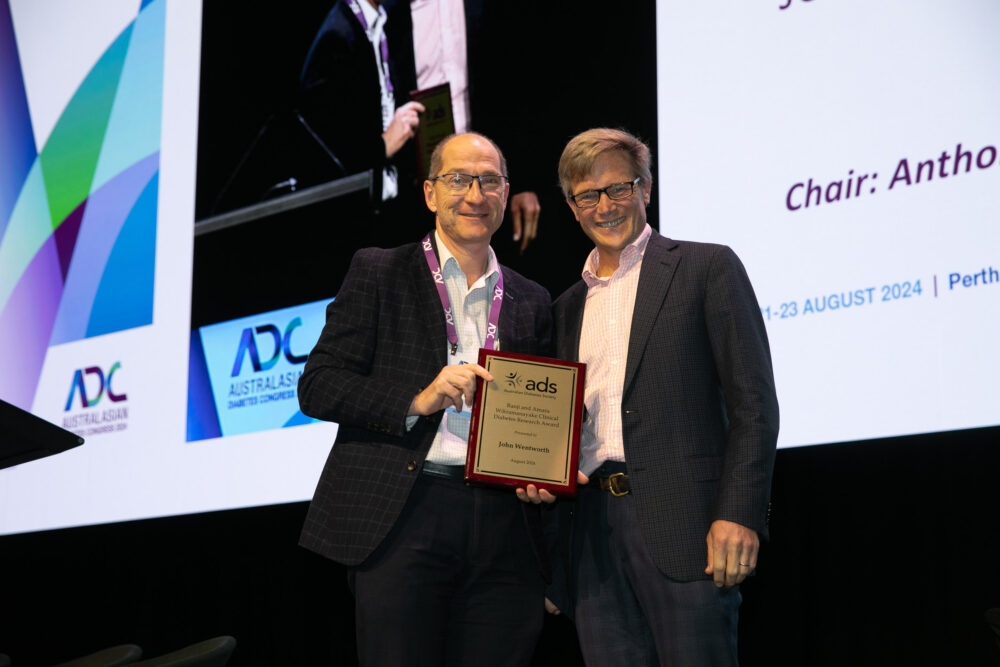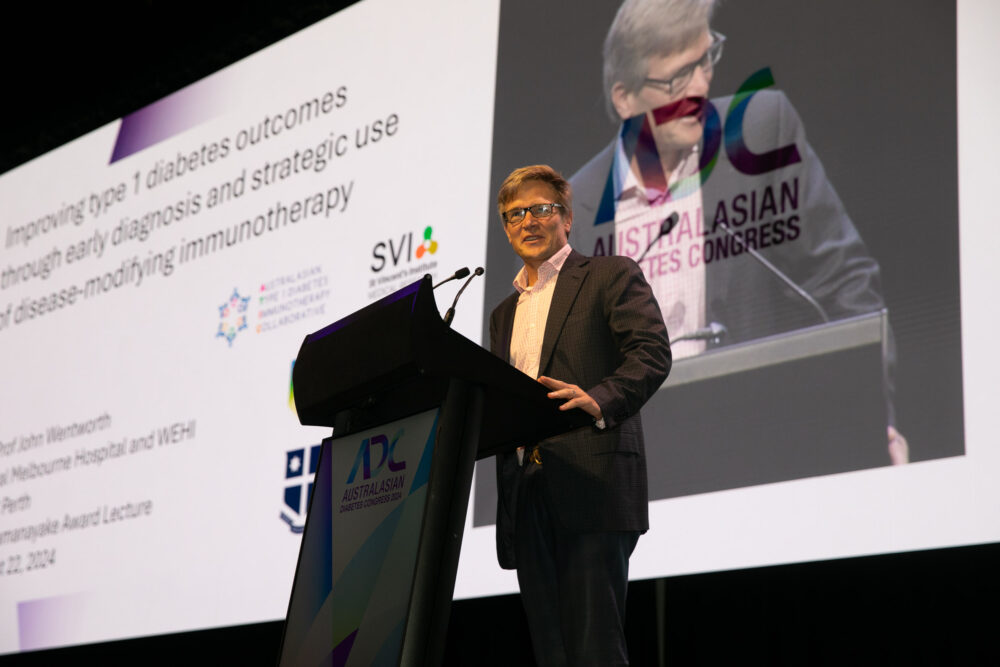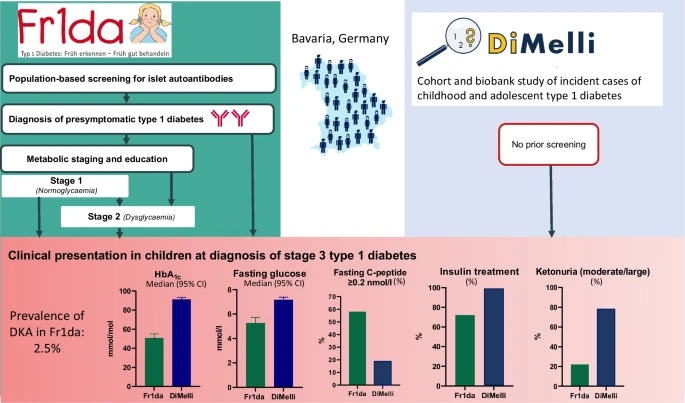Congratulations to Type1Screen’s lead doctor, Associate Professor John Wentworth, for being awarded the Ranji and Amara Wikramanayake Clinical Diabetes Research Award at the 2024 Australian Diabetes Society Congress (ADC).

John was awarded this predominantly due to his tireless work in the type 1 diabetes research space, but especially the improvement of early detection, diagnosis and intervention.
One of the elements of this critical work, has been the development of an at home screening test which can detect islet autoantibodies (early markers of type 1 diabetes development) on a dried blood spot card. So much more convenient and accessible to families, especially those who don’t like needles in the arm for a blood test or living in more rural and remote areas.
With colleagues, Dr Wentworth has also pioneered the facilitation of immunotherapy trials in Australia. His aim is to have a trial available for people at all ages and stages of type 1 diabetes, to preserve beta cell production of insulin for those with a diagnosis of clinical type 1 diabetes, or to slow or stop the progression for those in the early stages.




